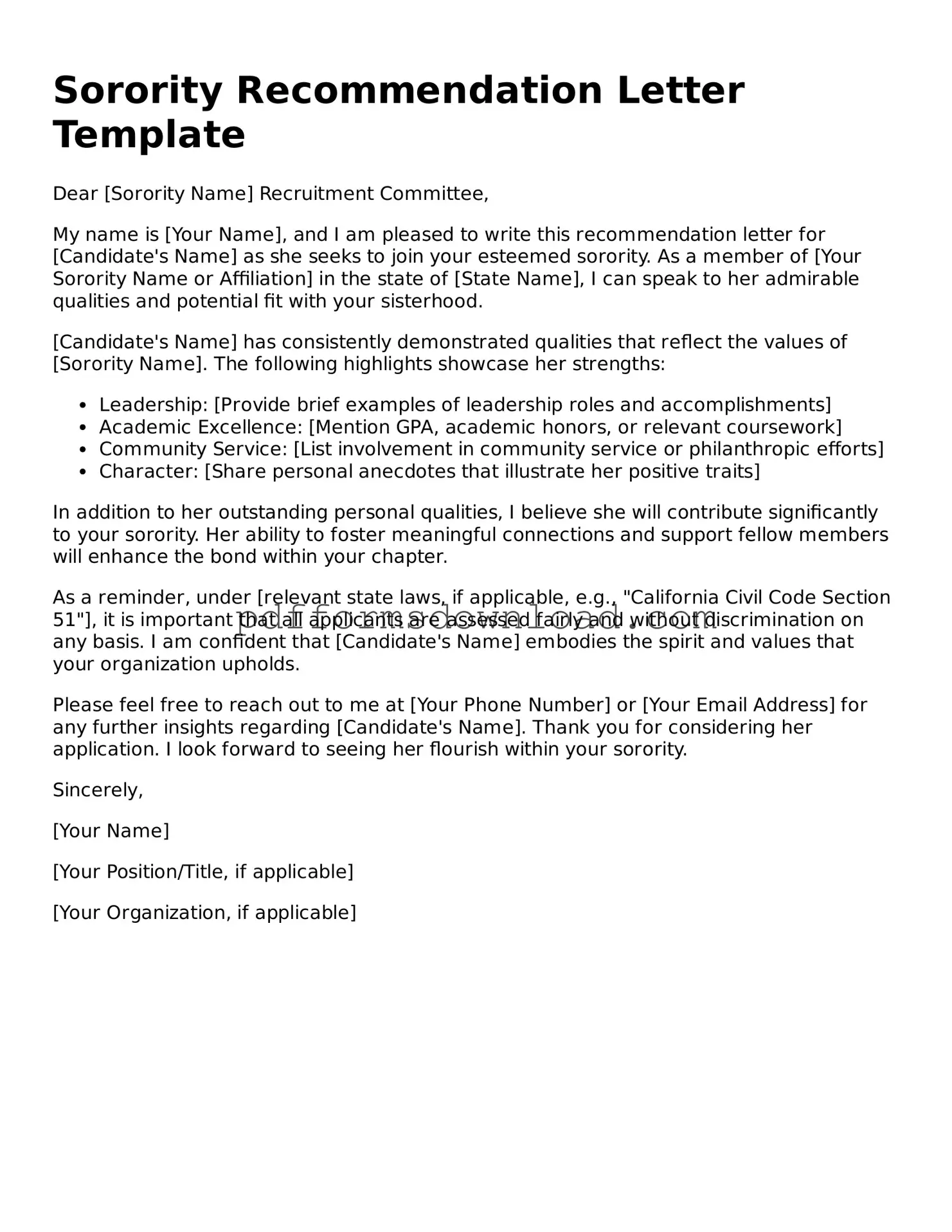What is a Sorority Recommendation Letter?
A Sorority Recommendation Letter is a document that supports a potential new member’s application to a sorority. It is typically written by someone who knows the candidate well, such as a former sorority member, a family member, or a friend. The letter highlights the candidate's strengths, character, and suitability for sorority life.
Who can write a Sorority Recommendation Letter?
Generally, anyone who is a member of a sorority can write a recommendation letter. This often includes alumni of the specific sorority to which the candidate is applying. However, it can also be written by members of other sororities or individuals who can speak positively about the candidate’s qualities and potential contributions to sorority life.
Why is a Recommendation Letter important?
A recommendation letter can significantly enhance a candidate's chances of being accepted into a sorority. It provides a personal perspective on the candidate's character and accomplishments. Sororities often receive many applications, so a strong recommendation can help a candidate stand out in a competitive selection process.
What should be included in a Sorority Recommendation Letter?
The letter should include specific examples of the candidate's leadership abilities, academic achievements, and personal qualities. It is also helpful to mention any relevant extracurricular activities or community service. The writer should express their confidence in the candidate’s ability to contribute positively to the sorority.
How long should a Sorority Recommendation Letter be?
Typically, a recommendation letter should be one to two pages long. It should be concise yet thorough enough to provide a clear picture of the candidate. The focus should remain on quality rather than quantity, ensuring that the most relevant information is highlighted effectively.
Is there a specific format for the Recommendation Letter?
While there is no strict format, the letter should be typed and professionally presented. It should include the writer's contact information, the date, and a formal greeting. Following a standard letter format with an introduction, body, and conclusion is advisable, as it helps maintain clarity and organization.
When should the Recommendation Letter be submitted?
It is best to submit the recommendation letter as early as possible, ideally well before the sorority recruitment period begins. Many sororities have specific deadlines for submissions, so checking with the individual sorority for their timeline is essential. Early submission allows for any potential revisions or adjustments.
Can a candidate request multiple Recommendation Letters?
Yes, a candidate can and often should request multiple recommendation letters. Having several letters can provide a broader perspective on the candidate's abilities and character. However, it is important to ensure that the letters are from individuals who can genuinely speak to the candidate's qualifications and fit for the sorority.
What if a candidate does not have a Recommendation Letter?
While having a recommendation letter is beneficial, it is not always mandatory for joining a sorority. If a candidate does not have one, they should still apply and demonstrate their interest and qualifications through other means, such as their application, resume, and personal interactions during recruitment events.
Are Recommendation Letters confidential?
Typically, recommendation letters are considered confidential, meaning that the candidate may not have access to them. This confidentiality encourages honesty from the writer, as they can provide an unbiased assessment of the candidate. However, policies may vary by sorority, so it’s advisable to check with the specific organization.

